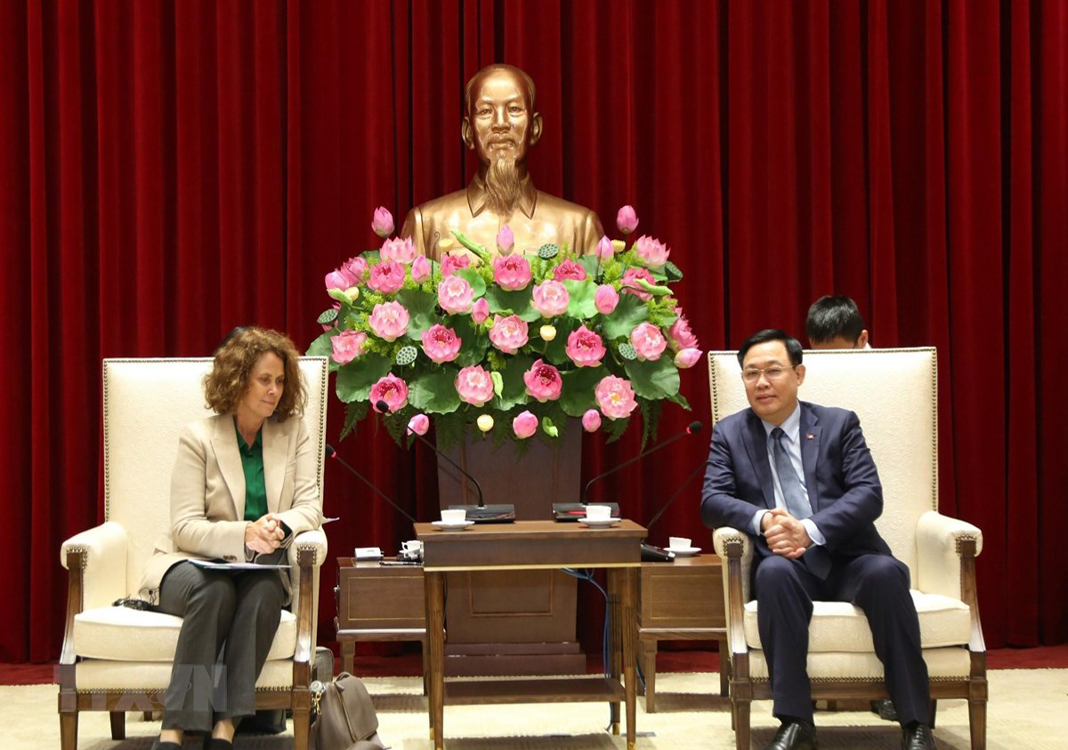HCMC – Hanoi City needs to mobilize resources to develop its infrastructure system given its fast urbanization, Vuong Dinh Hue, secretary of the municipal Party Committee, told Carolyn Turk, World Bank (WB) Country Director for Vietnam, at a meeting in Hanoi on January 12.
Aside from being Vietnam’s political and administrative hub, Hanoi is also one of the two biggest economic hubs in the country. Over the past five years, the capital city attracted some US$25 billion in foreign direct investment (FDI). In 2020 alone, it managed to woo over US$4 billion in FDI capital despite the impact of the Covid-19 pandemic, Hue said.
To obtain a growth rate of 7.5% in the next five years, the city’s total capital for investment and development is expected to inch up 12% per year.
Accordingly, to achieve this goal, Hanoi will have to call for more resources, including FDI, official development assistance loans and preferential loans from international financial organizations, including the WB, the municipal Party secretary said.
The city also hopes for technical support and consultations with international organizations, including the WB, over socio-economic development, social welfare, urban management, traffic congestion settlement and climate change response, he stressed.
Turk expressed her thoughts over the robust growth of Hanoi. However, the city is confronting many problems, including river pollution and poor air quality, that need to be urgently addressed, she continued.
The WB over the past years has assisted the city in developing a bus rapid transit system, but the financial aid for the city has not matched the potential and aspirations of the bank.
The WB representative suggested four areas of cooperation for the upcoming period, including developing an urban railway system and studying a strategic vision for the city’s urban transport.
In addition, the bank looks to share its experience in coping with water pollution and managing food safety and hygiene activities with the city.
She added that the bank is researching sources of air pollution in Hanoi and neighboring localities. Once the research results are available, the bank will share them with Hanoi.
In response, Hue praised her suggestions and added that Hanoi is set to diversify resources to implement major infrastructure projects.
Regarding the urban railway line No. 6., the city hopes to receive support from the bank to complete the pre-feasibility study for the project. The city will also consider using the bank’s loans for other urban railway projects, Hue said.









